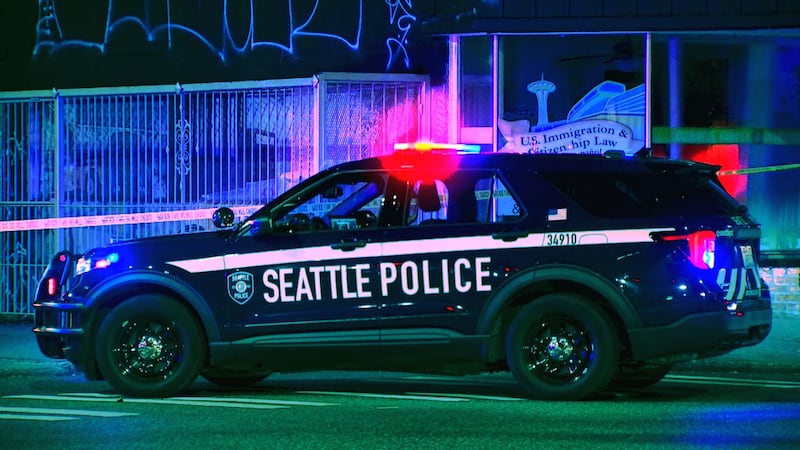SEATTLE — It appears the Seattle Police Department will no longer have the federal government overseeing most of its operations.
A consent decree designed to curb abuses in the department could be over, but there’s a catch.
On Wednesday, Seattle Mayor Bruce Harrell said the department had achieved compliance with most of the issues, but there are some lingering issues left.
The court did say that use of force in crowd management, accountability, and some collective bargaining issues still need to be monitored.
Oversight will continue under a judge, but we will get a better idea on Thursday of what that could look like going forward.
The consent decree has been in place since 2012.
When we profiled this issue we spoke to an assistant U.S. attorney who said the department has taken steps to meet its obligation.
“Policing in Seattle looks dramatically different today than it did ten years ago,” said Assistant Attorney General Kristen Clarke. “The consent decree in Seattle has provided the strong medicine necessary to cure the problems.”
The oversight was implemented after a pattern of police bias and excessive force was discovered.
The Department of Justice now says that the department has complied with core requirements from the oversight for at least the last five years.
Federal officials say SPD has put in the reforms and reduced the use of serious force by 60%. The department has also improved responses to things such as behavioral health crises and has bias-free training.
We’ll learn more about how oversight goes forward when the court ruling from Judge James Robart is released Thursday.
On Wednesday, Harrell released the following statement:
“Judge Robart agreed with the City and the Department of Justice that our Seattle Police Department had achieved sustained compliance with most requirements of the federal consent decree, closing out significant portions of the consent decree and allowing our community and police service to move to the next phase of reform.
“Judge Robart’s ruling is a critical milestone in our efforts to reform policing. It recognizes the significant changes in our approach to crime, behavioral health incidents, and professional standards. I am grateful for the excellent work of our police officers that brought us to this point. I am also thankful for the people of Seattle who have, from the beginning of this journey 12 years ago, wanted a police service that is fair, respectful, and effective in keeping everyone safe in every neighborhood.
“To achieve final resolution of the case, the Court identified three additional areas SPD must address – use of force in crowd management, the effectiveness and sustainability of the accountability system currently in place, and the results of collective bargaining with the Seattle Police Officers Guild.
“Crowd management policies and practices and officer accountability will continue to receive our full attention. Chief Diaz and I will work closely with the Community Police Commission, the Office of Police Accountability, and the Inspector General to ensure our civilian-led oversight system is independent and effective in its work to sustain the reforms and compliance that have been achieved.
“My highest City Charter responsibility is safety – and delivering effective public safety for Seattle’s communities requires an unyielding commitment to the work of reform and improvement. I look forward to our continued work together – accountability advocates, officers, neighbors, all of us – toward an always-improving Seattle Police Department.”
©2023 Cox Media Group








